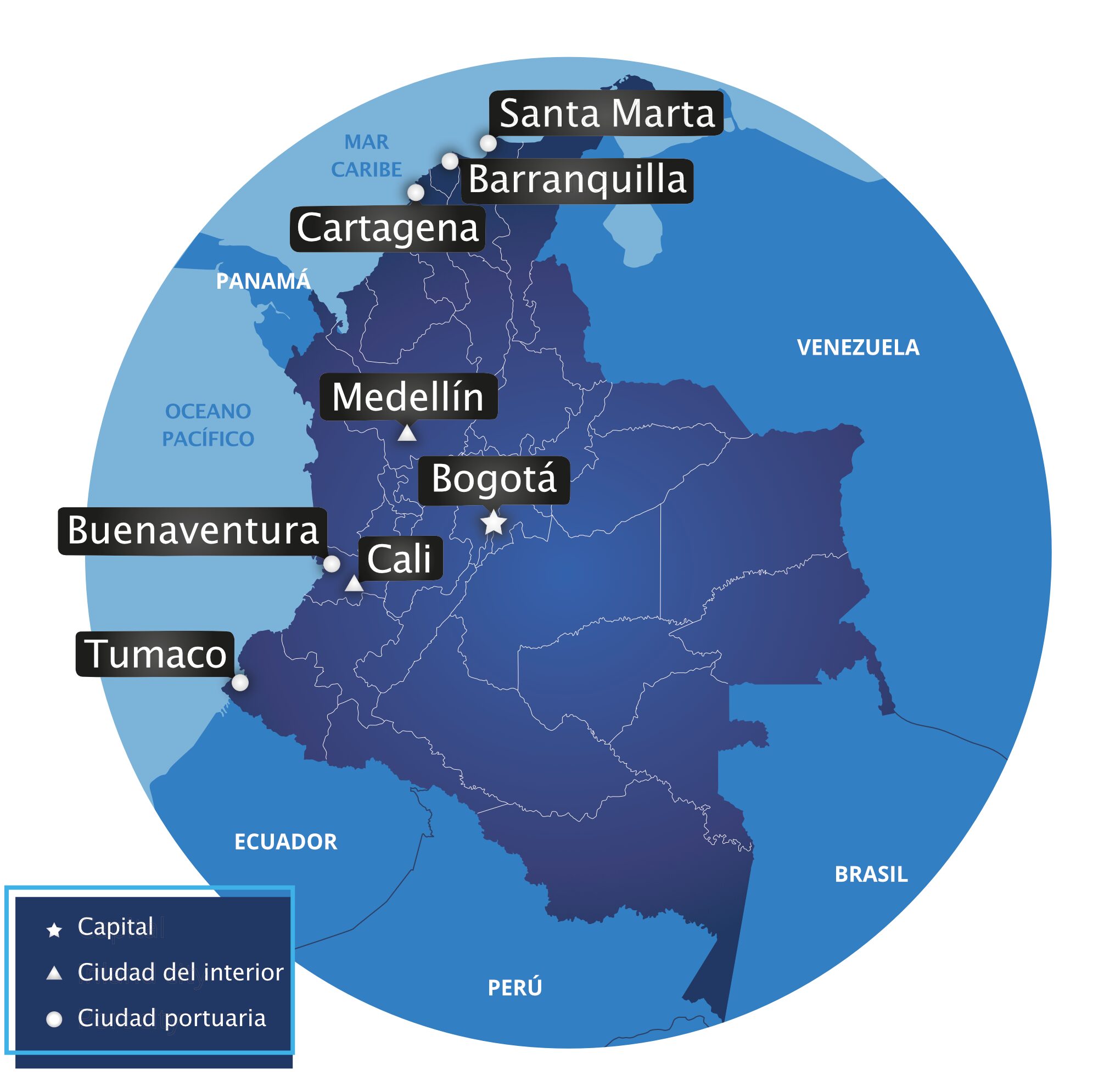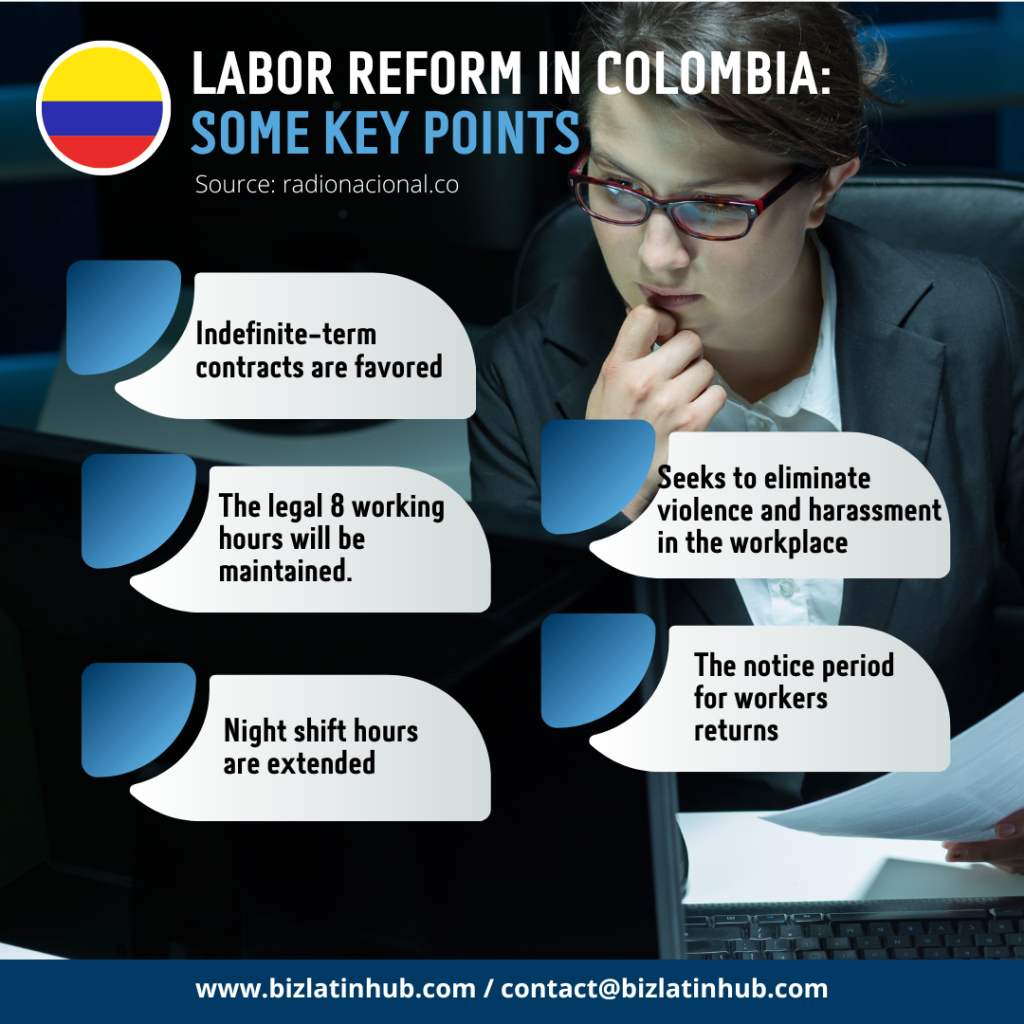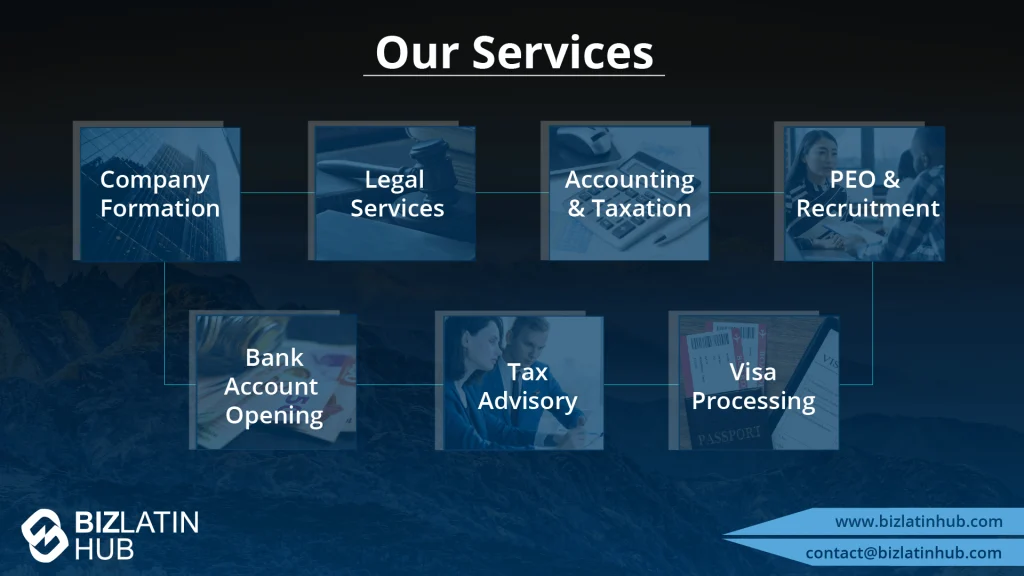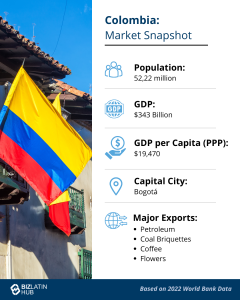This year, the process of reducing hours in the standard workweek without a pay decrease is taking the work week down to 46 hours. The new total will be in effect from the 16th of July 2024. This is the next step in moving towards a 42-hour workweek by 2026, according to last year’s labor law reform in Colombia. The previous expectation of hours worked per week in Colombia was 48.
The change is impacting businesses in several ways, including legal and practical reforms. The distribution of work hours over 5 to 6 days can still be negotiated by employers and employees as long as at least one day off per week is maintained. Businesses may have to adapt further in order to ensure ongoing compliance with the new labor reform in Colombia.

Biz Latin Hub can help your company remain compliant and up-to-date with the labor law reform in Colombia. Read our article below, for an example of how it may be beneficial for your company to be aware of these changes. If you’re not already operating in the country, we can help you to incorporate a company in Colombia as well as support you through the business life cycle with our array of back-office services.
What does the labor law reform in Colombia look like?
There have been significant changes because of the labor law reform in Colombia. Workers and companies throughout the country should be aware of the following adjustments:
- The work week will decrease to 46 hours.
- The amount of time Colombians spend working will decrease by one hour yearly, with no adverse effects on pay, benefits, or the worth of the daily working hour.
- The final goal of the initiative is to cut the workweek to 42 by 2026.
- The first two years (2023 and 2024) have seen a reduction of one hour, and will be followed by a reduction of two hours in 2025 and 2026.
These changes will affect both employees and employers. If you operate a business in Colombia, you may be obligated to comply with requirements such as renegotiating conditions with your current staff, updating and/or revising your employment contracts to reflect these new demands, and modernizing your payroll procedures.
For employees, employers will no longer be required to provide the Día de Familia or recreational days benefits if the maximum number of work hours reaches 42. But, new reflections in the labor law for this reduction of the workweek in Colombia, will prevent employers from cutting pay and additional benefits for employees during vacation and holidays.
What have been the effects on the economy?
Shortening the workweek has not resulted in reduced production, from initial reports. On the other hand, Colombia had failed to abide by the International Labor Organization’s recommendations since 1962 and these changes are bringing the country closer to its OECD companions.
However, despite the lowering of the maximum working time to 46 hours per week, Colombia’s employment law will remain higher than the average working day of OECD members, which is 37 hours per week, and it won’t get to the ILO’s recommended standard of 40 hours per week, which is the work week found in more productive nations.
Companies that do not comply with the new working week totals can continue hiring people for 48 hour workweeks, but are obligated to raise pay accordingly. The labor law reform in Colombia also, of course, works in conjunction with other existing employment regulations.
Which sectors have been most affected by the labor law reform in Colombia?
The industrial sector has been the most resistant to the labor law reform in Colombia. According to the National Association of Entrepreneurs (ANDI), cutting back on working hours does not necessarily indicate that a company will have more time for its productive activities, necessitating the hiring of additional staff.

Why is this happening?
The government intends to improve workers’ ability to merge their job and personal lives. To improve the mental health and productivity of the workforce, a reduction of the workweek in Colombia has been supported and implemented by the government. The goal is for more time to be spent with family and friends, among other things. The jury is still out on whether this has happened in the short term.
The law is also designed to give workers more free time so they can pursue further education and skill development. It is anticipated that this will lessen employee absenteeism, help with job reactivation, and raise awareness of the relationship between employers. More businesses are frequently adopting flexible practices, such working on Fridays until noon and creating more flexible work schedules, as well.
Has the labor law reform in Colombia had an adverse reaction on the economy?
There has been limited analysis of the potential benefits and drawbacks of this new law as it has only recently been put into effect. Anecdotally, it seems that workers are slightly happier, especially in lower-paid jobs. This is critical, as the labor law reform affects lower-paid workers much more. Many professional jobs often already have 37.5 hour weeks. Employment remains buoyant. Most critically, the economy hasn’t seen any great dip.
While the Colombian economy is not growing at the rate it was a decade ago, it is still increasing year-on-year. Post-Covid, the country has registered annual growth on par with or ahead of its fellow OECD members. There clearly hasn’t been a large dip in productivity and economic problems appear to lie elsewhere in the wider picture.
Biz Latin Hub can help you hire and stay compliant with the labor law reform in Colombia
At Biz Latin Hub, we provide integrated market entry and back-office services throughout Latin America and the Caribbean, with offices in Bogota and Cartagena, as well as over a dozen other major cities in the region. We also have trusted partners in many other markets.
Our unrivalled reach means we are ideally placed to support multi-jurisdiction market entries and cross-border operations.
As well as knowledge about hiring in Colombia, our portfolio of services includes hiring & PEO accounting & taxation, company formation, bank account opening, and corporate legal services.
Contact us today to learn more about how we can assist you in finding top talent or doing business in Latin America and the Caribbean.
If this article about the labor law reform in Colombia was of interest to you, check out the rest of our region coverage. Or read about our team and expert authors.






